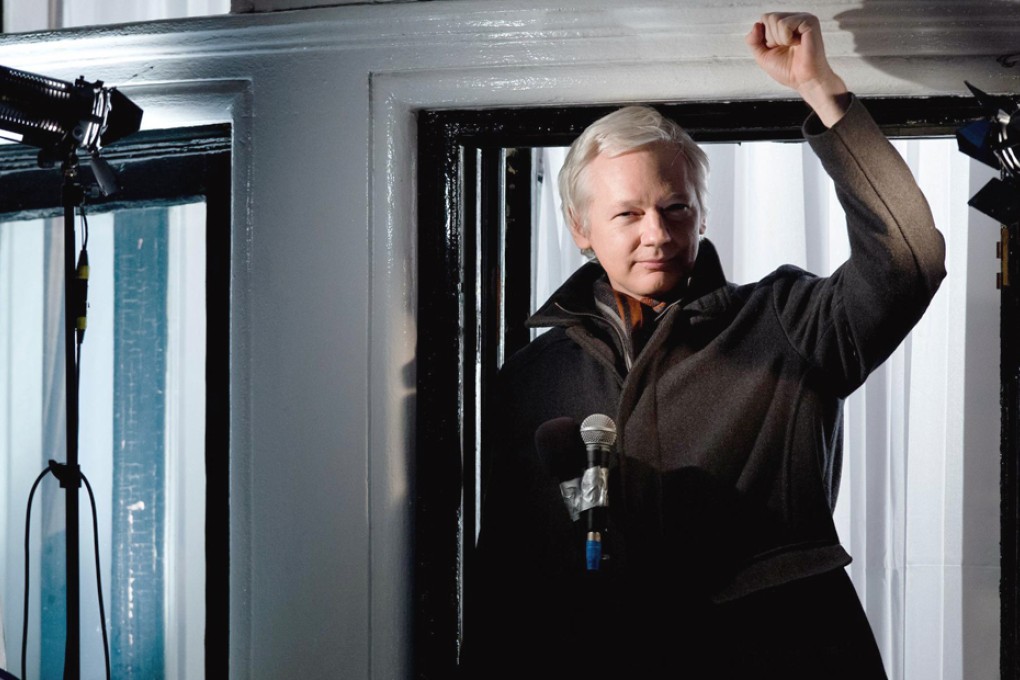WikiLeaks’ Julian Assange tries to end deadlock with Swedish legal challenge
Lawyers for WikiLeaks founder are preparing to file a challenge to his detention order in Sweden, after gathering 'new information'

Lawyers for Julian Assange, the WikiLeaks founder who yesterday marked his second anniversary holed up in the Ecuadorian embassy in London, are preparing to file a challenge to his detention order in Sweden in a move that could lift the state of legal limbo in which he is trapped.
Jennifer Robinson, Assange's British lawyer, said the legal challenge, due to be lodged with Swedish courts on Tuesday, was based on "new information gathered in Sweden".
News of the challenge was the first indication in months of any possible way out of the legal deadlock in which Assange has fallen since he took refuge in the embassy on June 19, 2012. Since then, the embassy has been ringed with British police 24 hours a day, at a cost of more than £6 million (HK$78.8 million) to the taxpayer, as the British government seeks to enforce an extradition order to send the WikiLeaks publisher to Sweden.
The Swedish detention order that Assange is now challenging was issued in November 2010. It requires the founder of the free information website to be arrested and extradited to Sweden to face questioning over the alleged sexual assault of two women in that country.
Assange fears that the Sweden case is a pretext for transferring him to the United States, where WikiLeaks sparked an uproar with its publication of thousands of secret documents.
Speaking ahead of the anniversary of his confinement, Assange railed against the US authorities and expressed his support for fellow whistle-blower Edward Snowden.
The 42-year-old has been advising and helping raise funds for Snowden, a former CIA intelligence contractor who released thousands of US secrets last June and has now been granted temporary political asylum in Russia.